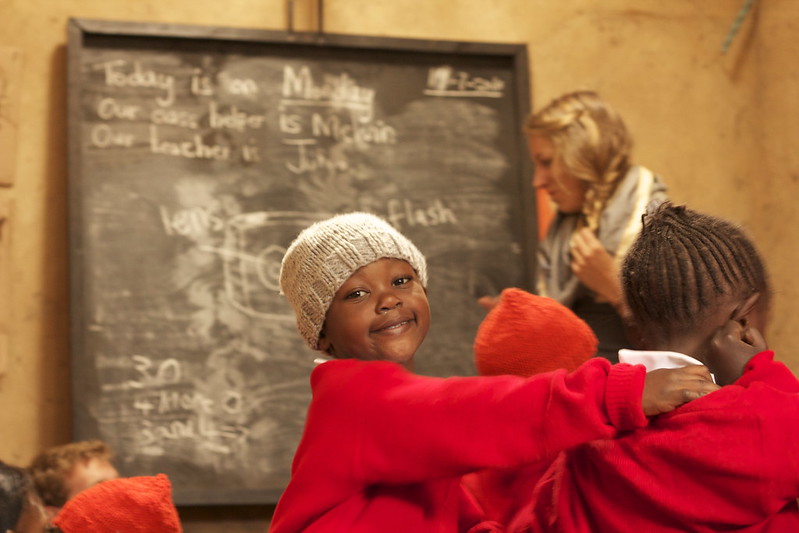Little Lions: Reducing Poverty Through Education in Kibera
 Kibera, one of the world’s largest slums, is home to more than 230,000 men, women and children on the outskirts of Nairobi, Kenya. Many households survive on less than $2 a day, struggling with a lack of infrastructure, waste management, plumbing and water access. The high cost of refrigeration prevents residents from safely storing food, contributing to malnutrition and health risks. Waste accumulates in the streets and waterways, placing additional strain on the community.
Kibera, one of the world’s largest slums, is home to more than 230,000 men, women and children on the outskirts of Nairobi, Kenya. Many households survive on less than $2 a day, struggling with a lack of infrastructure, waste management, plumbing and water access. The high cost of refrigeration prevents residents from safely storing food, contributing to malnutrition and health risks. Waste accumulates in the streets and waterways, placing additional strain on the community.
The Barriers to Education in Kibera
Extreme poverty limits access to education, leaving 60% of children without formal schooling. The few available classrooms are overcrowded, with student-teacher ratios reaching 100-to-1 due to insufficient infrastructure, staff and resources. Without intervention, many children miss out on opportunities to build a better future.
Providing a Safe and Nurturing Environment
Little Lions opened its first school on the outskirts of Kibera in 2019. Through generous contributions, the team created a safe learning space for 167 students and counting. The school provides more than just education—students participate in art classes, dance competitions and soccer tournaments, building confidence and teamwork. Technology is another crucial element of the curriculum. Donated computers and online tutoring tools help students develop digital literacy, an essential skill for future opportunities. Before focusing on academics, however, the school prioritizes basic needs. Children receive two hot meals daily, sometimes the only food they will have, as well as plumbed bathrooms with running water—a rare necessity in Kibera.
Little Lions: Breaking Barriers Through Education
Little Lions is working to change this reality by providing structured, high-quality education in Kibera. The program ensures that young residents gain knowledge, skills and resources to build prosperous futures. The initiative focuses on nutrition, modern learning methods, personalized care and emotional support to address the deeper challenges of poverty.
Tuju Otieno, Little Lions Project Director, leads a team of educators who understand the hardships of growing up in informal settlements. Many teachers and staff were once orphaned or raised in slums, giving them a deep connection to the students. Little Lions offers a holistic approach to learning, combining the British and Kenyan curriculums while integrating counseling, music and art therapy to help children process the realities of their environment.
Beyond the Classroom: Supporting the Community
Little Lions’ impact extends beyond the students. The school employs about 20 staff members, including kitchen workers, teachers and sanitation crews, reducing high unemployment rates in the area. Through a partnership with Penda Health, the school provides health screenings for students and their families, ensuring their overall well-being. Parents are also included in the initiative through financial literacy, entrepreneurship and positive parenting workshops. Strengthening families allows students to thrive both at school and at home, reinforcing their ability to succeed.
A Ripple Effect in Kibera
Since its launch, Little Lions has transformed the lives of many Kiberans. Students have gained confidence, curiosity and academic skills and many have gone on to pursue secondary education. As education access expands, economic opportunities increase, helping to break the cycle of poverty in the community. By investing in education, holistic care and community development, Little Lions aims to prove that sustainable change is possible, even in the most challenging environments.
– Sarah Lang
Sarah is based in Pittsburgh, PA, USA and focuses on Technology and Politics for The Borgen Project.
Photo: Flickr
